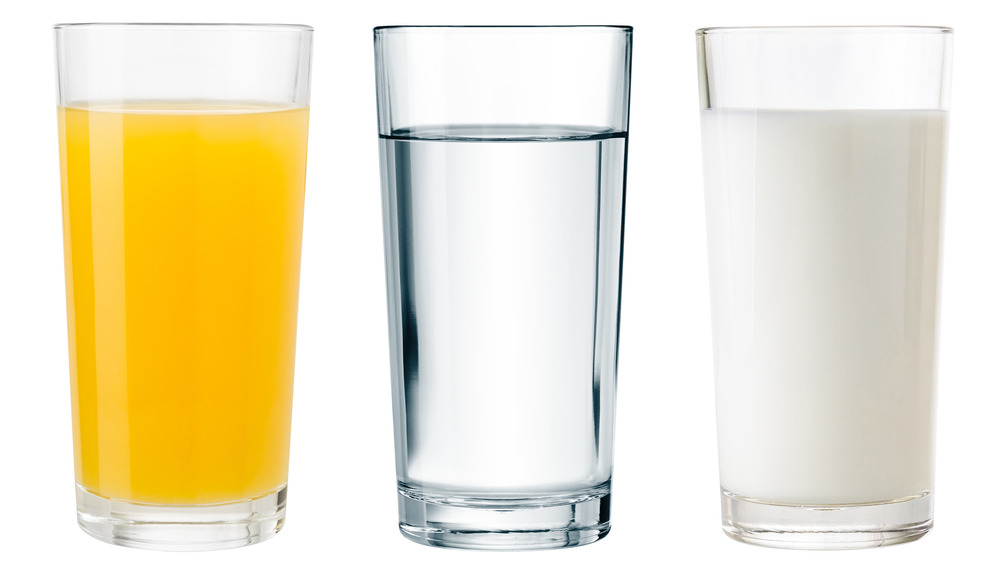Is Dry Fasting Actually Safe?
Fasting has been around for a long time as a religious observance, but in recent decades, it's entered the culture as a means to weight loss and control. Lately, intermittent fasting has become the trend to try. That's the eating program that calls for limiting food intake to a set window of the day, usually four to eight hours long. But a new version of fasting is on the rise, and it has some people concerned.
A limited list of liquids is usually allowed in any fasting program. But dry fasting calls for the exclusion of everything, including liquids like coffee, tea, and water, according to Women's Health. People who dry fast often try to pre-load their bodies with liquid by eating lots of water-rich fruits and veggies, but that isn't enough to keep you hydrated.
There are two methods of dry fasting which proponents say have different health benefits, according to Elemental. It can be done as a supplement to intermittent fasting, or it can be done for extended periods like days or weeks. Proponents say the former puts stress on cells that allow them to better regenerate, fight infection, and even reduce inflammation. The latter is said to fight and even heal kidney disease. Neither claim is backed up by any scientific study.
What are the problems with dry fasting?
Claire Mysko, CEO of the National Eating Disorders Association, told Elemental that the trend of dry fasting is concerning. "I would say a lot of these fasts are, it seems to me, getting more and more extreme in terms of what is being put forward under the language of 'this is health.'"
Dry fasting can cause dehydration, which is a serious health problem, according to Healthline. This can cause electrolyte imbalances which, in the most serious cases, can impact the heart. It can also be the cause of low blood pressure which can lead to fainting, and urinary tract issues like kidney stones and infections.
It's also important to note that drinking water helps control hunger, according to Livestrong, so if you've turned to fasting as a way to lose weight, it's important to keep water in your overall diet.
The bottom line is, there are much healthier (and less risky) ways to lose weight and address some of the health concerns that people are looking for with dry fasting. And, as with any dietary change, before starting it's a good idea to speak with your doctor to identify health conditions that might prevent progress.
If you are struggling with an eating disorder, or know someone who is, help is available. Visit the National Eating Disorders Association (NEDA) website or contact NEDA's Live Helpline at 1-800-931-2237. You can also receive 24/7 Crisis Support via text (send NEDA to 741-741).


